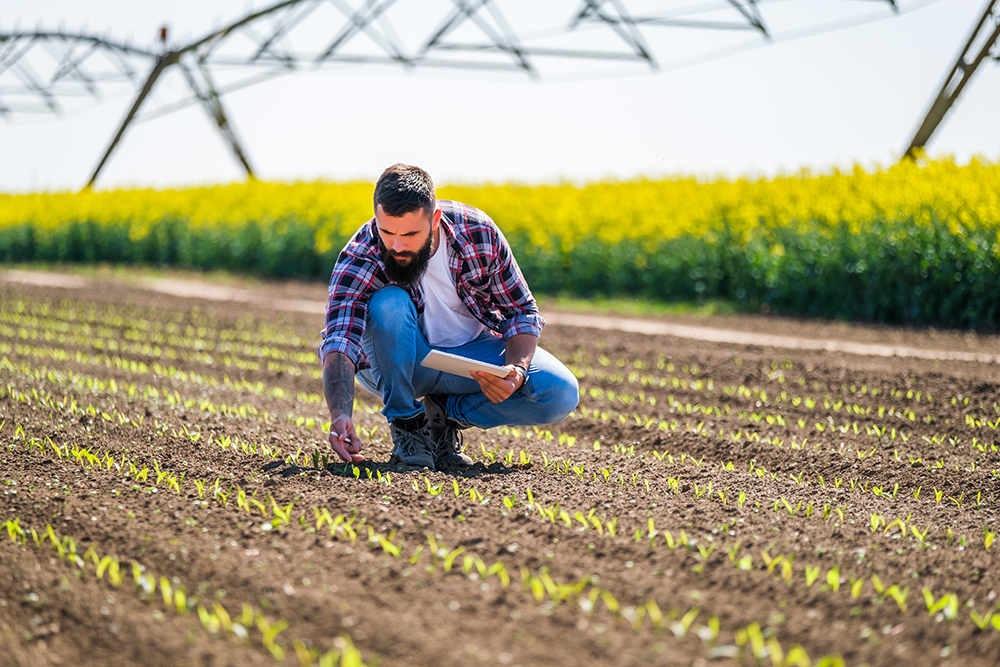
When it comes to agriculture, healthy soil is the foundation for successful farming. However, a lesser-known but critical factor that can affect crop productivity is soil compaction. This occurs when the soil particles are pressed tightly together, reducing pore spaces and negatively impacting plant growth.
Let’s explore the importance of compacted soils in farming, its impact on crops, and potential solutions to mitigate this issue.
Understanding Soil Compaction
Soil compaction is a process that occurs naturally over time due to factors such as weather, erosion, and foot traffic. However, modern agricultural practices can exacerbate this phenomenon. Heavy machinery, such as tractors and harvesters, can compress the soil as they traverse the fields. When the soil becomes packed down, it loses its ability to retain essential nutrients and water, depriving plants of the vital elements needed for growth.

Impact on Crop Productivity
The impact of compaction on crop productivity cannot be underestimated. It hinders root penetration and growth, restricting access to essential nutrients deeper in the soil profile. As a result, plants may struggle to develop a robust root system, leading to weaker, stunted growth. Additionally, soil in this state has reduced water infiltration capacity, increasing the risk of surface runoff and erosion during heavy rainfall, further depriving crops of water and nutrients.
Furthermore, compaction can exacerbate issues related to soil aeration. It leaves soils with limited air circulation, leading to reduced oxygen levels for beneficial soil organisms. This, in turn, disrupts the natural decomposition of organic matter and negatively impacts soil health and nutrient cycling.
Detection
Detection is crucial for farmers to understand the health of their fields. Some common signs of compacted soils include reduced crop yields, standing water after rainfall, and slow seedling emergence. In advanced cases, root systems may exhibit shallow, horizontal growth rather than the desirable deep, vertical penetration.

Prevention and Solutions
Preventing soil compaction is more manageable than trying to remedy it once it has occurred. Here are some strategies farmers can employ to minimize compaction and promote healthy soil:
Controlled Traffic Farming: Implementing controlled traffic systems limits the area where machinery drives within a field. By confining the machinery to specific paths, farmers reduce the overall area subject to compaction, leaving more space for crops to thrive.
Cover Crops: Integrating cover crops into the farming rotation can help improve soil structure and reduce compaction. Cover crops protect the soil from erosion, enhance organic matter content, and increase soil porosity.
Reduced Tillage: Minimizing tillage practices helps maintain soil structure, as excessive tilling can lead to compaction. No-till or reduced tillage techniques preserve soil integrity and promote better water infiltration.
Soil Aeration: Using equipment like soil aerators or subsoilers can alleviate compaction by creating channels in the soil, allowing air, water, and nutrients to penetrate deeper into the ground.
Growthful: As a soil amendment – Growthful Pre-Emerge products reduce compaction, break
up bicarbonates, and reduces the particle size of soil and nutrients. This makes nutrients more readily available for transport and consumption through the plant root hairs.

Conclusion
Soil compaction is a significant concern for farmers as it directly impacts crop productivity and overall soil health. By understanding the causes and consequences of compressed soils, farmers can take proactive steps to prevent it. Employing sustainable farming practices that prioritize soil conservation, such as controlled traffic farming, cover crops, reduced tillage, and soil aeration, will not only mitigate compaction issues but also promote long-term agricultural sustainability. By nurturing the soil beneath their feet, farmers can foster healthier crops and cultivate a more bountiful future for agriculture.
